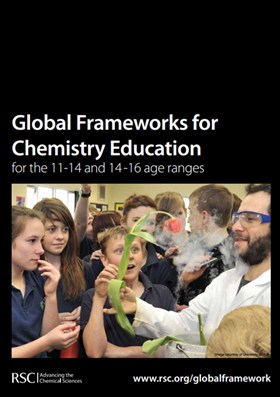The Royal Society Of Chemistry has published the first report in their Global Frameworks for Chemistry Education project

The frameworks, produced for the 11-14 and 14-16 age groups, will help teachers to explain chemistry within the context of the key challenges that society faces.
'Allowing students to engage with and understand globally relevant issues brings science to life in the classroom', said Ellen Weavers, RSC schools and colleges specialist. 'Context-based learning is key to building enthusiasm and allowing students to identify with the knowledge required of them.'
The RSC's 2009 report Chemistry for Tomorrow's World identified the major challenges that must be addressed by the chemical sciences in the 21st century. It recognised seven priority areas - air and water, energy, raw materials, food, human health, future cities and lifestyle and recreation. The GFCE project explores the science that underlies these priority areas. Its central theme is that these contexts should be fundamental to the curriculum, rather than simply illustrative of it.
Future work on the GFCE project will include extending the frameworks to other age ranges.






No comments yet